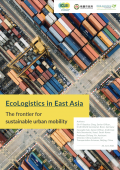This study examines the relationships among attitudes to climate change, risk perceptions, and coping behavioral intentions in different townships of Yunlin County in Taiwan, which has relatively high vulnerability to the consequences of climate change.
In this study, the 13 townships of Yunlin County are grouped into four categories of synthesized vulnerability and ecological footprint (EF):
- “low synthesized vulnerability/low EF” (Linnei)
- “high synthesized vulnerability/low EF” (Sihu)
- “low synthesized vulnerability/high EF” (Mailiao)
- “high synthesized vulnerability/high EF” (Huwei).
Ecological footprint was used to measure the human demand for resources and ecological services, as well as a way to understand the relationships among human living habits, consumption patterns, and natural capital consumption. Then, the relationships among attitudes to climate change, risk perceptions, and coping behavioral intentions in these four categories were examined using structural equation models (SEM).
The results of the SEMs for the four sensitivity categories indicate that different townships exhibit different causal relationships among attitudes to climate change, risk perceptions, and behavioral intentions. These findings can support appropriate strategies for governments, communities, and non-governmental organizations (NGOs) to ensure that areas of various sensitivities can cope. However, more vulnerable townships exhibit no significant positive relationship between attitudes to and knowledge of climate change, place attachment, and their adaptation behavioral intentions in the face of disaster risk perceptions. Therefore, in areas with high vulnerability, special attention should be paid to making the residents improve their adaptive behavioral intentions in the face of disaster risk perceptions.

